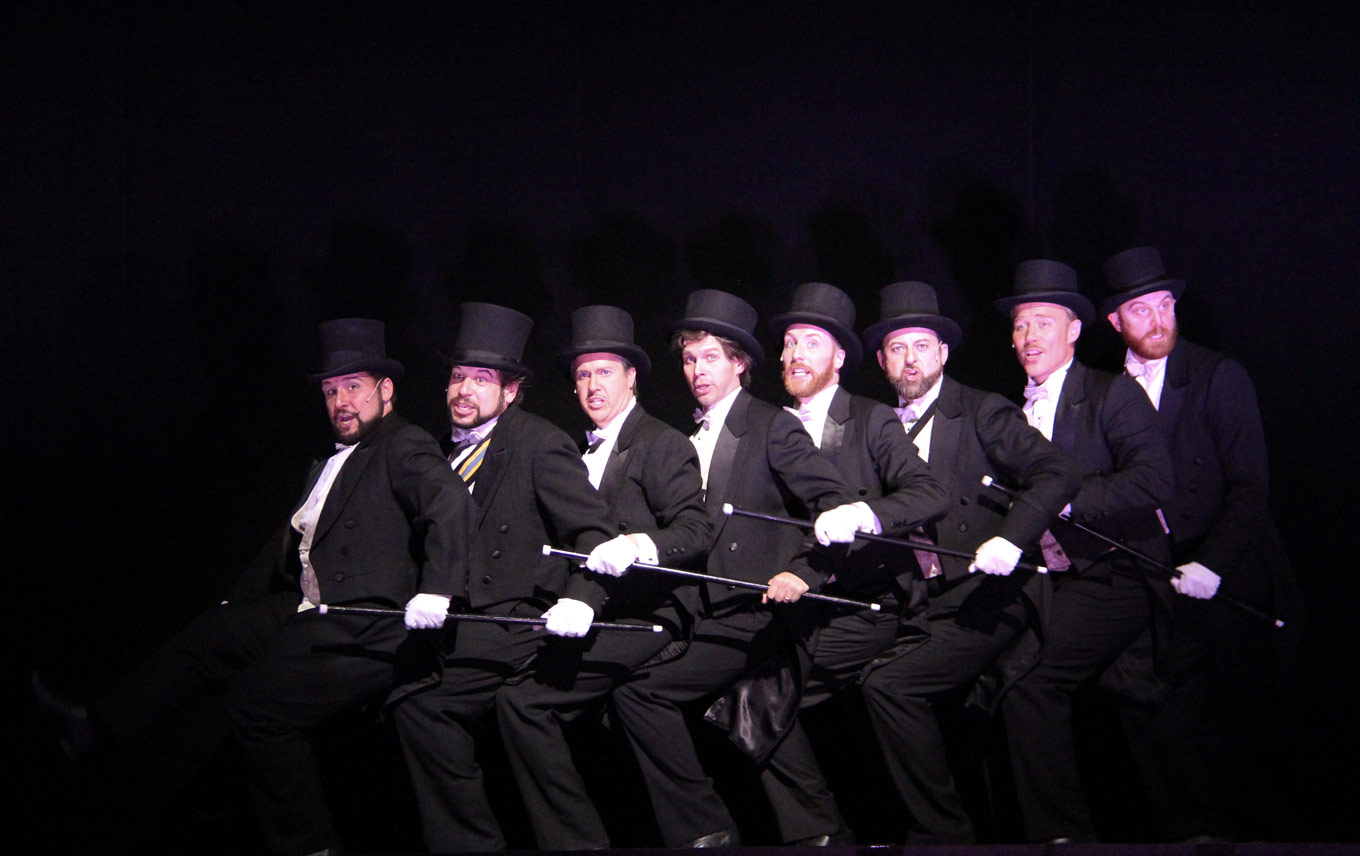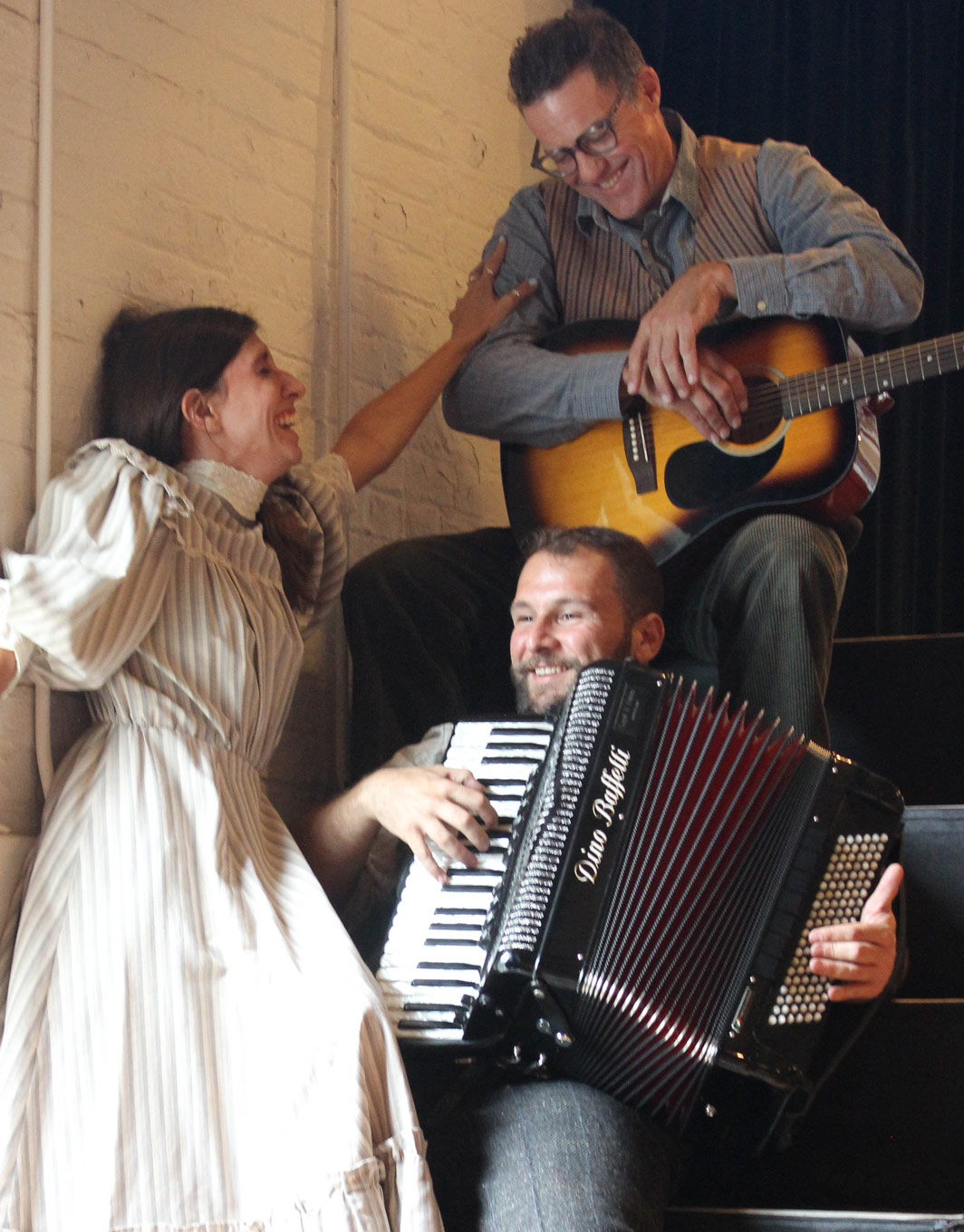
Spotlight on: Jacques Arsenault
InterviewPrince Edward Island-native Jacques Arsenault is currently in Toronto, gearing up for Tapestry Opera’s Bandits in the Valley (September 2-30), the new multimedia short opera based on the 19th-century history of the Don Valley and its resident smugglers and bandits. The versatile tenor has on his resume everything from The Light in the Piazza to Louis Riel, and his upcoming performances in Bandits in the Valley give him a chance to flex his equally impressive chops as an accordionist.
In our latest Spotlight interview, Arsenault talks about his deep musical roots, and the tough-but-fair balance between working in an industry that’s competitive, and the privilege of having an attentive audience.
Why do you sing, and why are you doing it professionally?
Music and theatre have been two pillars in my life since early childhood. I got my first accordion for my fifth birthday and studied intensively for the next thirteen years. After that, I switched to studying classical voice. Theatre came into my life when I was seven. That summer, I saw the musical Anne of Green Gables at the Charlottetown Festival and I went back to see it every two or three years. I was amazed at the spectacle and the emotional effect it had on me: the excitement of the egg-and-spoon race, with its moving background scenery, and how devastated I felt at Matthew’s death. To hear Elizabeth Mawson as Marilla sing “The Words” to Matthew’s empty rocking chair: that was the moment when I experienced the depth of what the voice could express and transmit.
I perform professionally because I was incredibly fortunate to have mentors and a manager who believed in me and gave me a chance. It’s a career choice that comes with its fair share of challenges but the personal benefits have been huge. The process of developing the characters I’ve played has forced me to dig deep inside and has taught me so much about my authentic self. Plus, I get to work alongside some truly amazing people. Colleagues of such incredible talent, humour, generosity, dedication, and irreverence. The relationships I’ve forged on and offstage have made my life much richer.
What does “good singing” mean to you? What does it feel like when you achieve it?
I spent two summers studying at the Franz-Schubert-Institut in Baden bei Wien, Austria. Its founder, Deen Larsen, would always implore us to be like an empty vessel so that we could be filled by the music and text, have it resonate within us, and then pour it out to the listener/viewer. My first time there, I thought that sounded nice, but I categorically disagreed: What about me and my feelings and what I want to say? When I went back five years later, it clicked.
Now, when I’m singing well, I feel like that vessel. I get out of my tenor brain and it becomes entirely about what my character is living in that moment, be it in a work of theatre or song. And that’s what I want when I’m in the audience: not to see that individual singer on stage. I want to see who that character is and what they are experiencing. My favourite performers throw themselves into a role, flaws and all. I don’t want to be held at arm’s length so that they can achieve technical perfection. Ultimately, the best singing happens when both the dramatic and technical are equally strong.

What do young singers need to do more of? What should they do less of?
I wish I had been more financially responsible as a young artist. I was like an ostrich with its head in the sand. But with the help of some financial pros, including Chris Enns of Rags to Reasonable, my wife and I took control of our finances and are so much happier for it. It’s still stressful, but the lights are now on and we know what we’re actually dealing with.
Young singers need to worry less about what others think. Embrace your inner weirdo. I spent much of my life feeling like I didn’t belong or fit in and pretending to be someone else. For example, I was ashamed of the “embarrassing” things I used to love doing as a kid: step-dancing and playing the accordion. Years later, I’ve been hired to do those very things in operas.
I’m lucky to have a few people in my life who know exactly who I am, who love me as I am, and that’s enough. That realization has made me a better person and a better artist.
Do you have any “bucket list” roles you’d like to sing (realistically or otherwise)?
So many! Vašek (The Bartered Bride), Don Basilio (Le nozze di Figaro), Pedrillo (Die Entführung aus dem Serail), the Witch from Hänsel & Gretel, the Baker from Into the Woods, Charley from Merrily We Roll Along, Quint from The Turn of the Screw, Lenny from Of Mice and Men, Herod (Salome), Peter Grimes, and going back to my roots: Matthew Cuthbert (Anne of Green Gables).

What have you learned about your career as a singer, solely through professional experience?
Invest in relationships. There are some remarkable individuals working in every aspect of this industry. Be the person others want to be around and work with—make yourself indispensable. Also, be super prepared. When luck comes your way, it’s useless if you’re not ready for it.
It’s not a fair business where everyone gets a turn. And I don’t believe that we are particularly sacrificing ourselves either. Rather, it’s a privilege that people show up to see and hear us perform. They give us their time, their money, their attention, and we should never take that for granted. I hope that I can always remain grateful for the opportunities that I’ve been given.
Readers, do you know an artist deserving of a little Spotlight? Let us know! Get in touch at [email protected].


Comments